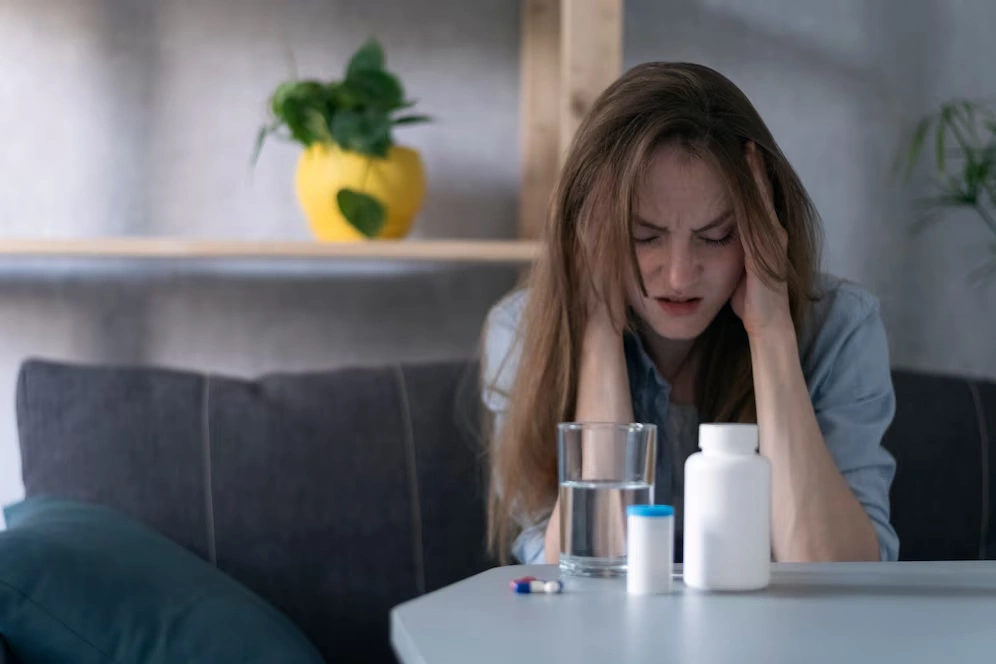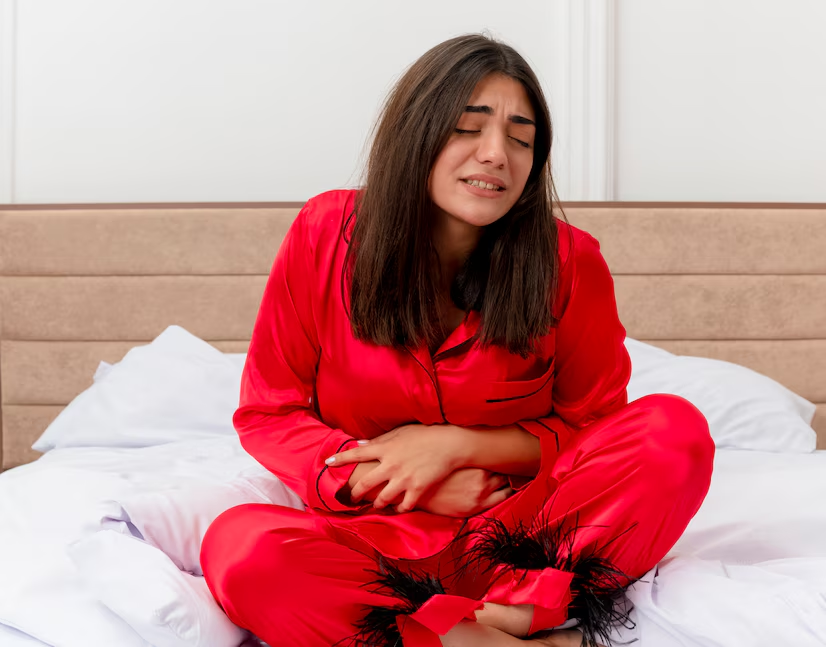Safe Use of Zopiclone: Essential Tips and Precautions

Zopiclone is one of the most commonly prescribed drugs specifically designed for short-term use in treating insomnia and other sleep disorders. The sedative-hypnotic is a non-benzodiazepine which is an agent that helps falling asleep as well as stay asleep. However, like all the other prescription drugs, Zopiclone has some risks, side effects, and precautions that should be known in order to use it safely.
In this blog post, we will discuss the essential tips and precautions for the safe use of Zopiclone, highlighting everything from its proper administration to potential interactions, side effects, and considerations for long-term use. Whether you’re currently prescribed Zopiclone or simply looking to learn more about the medication, this guide will provide valuable insights into its responsible use.
What is Zopiclone?
Zopiclone falls under the non-benzodiazepine hypnotics. These medications act upon the GABA receptors in the brain; hence it may cause a sedative and calming sensation. Zopiclone is mainly prescribed to help individuals who either cannot sleep or remain asleep. In most cases, the treatment lasts for a period of around 2 to 4 weeks, as this is a short-term treatment. High dosages are likely to contribute to its addictive effects.
How Zopiclone Works
Zopiclone is a CNS depressant, which exerts its action within the CNS by stimulating GABA, the brain’s inhibitory neurotransmitter. In this way, Zopiclone stimulates sedation, relaxation, and drowsiness through the enhancement of the effects of GABA. Compared to the benzodiazepines, which are also CNS depressants, Zopiclone has a somewhat different chemical structure thought to impart fewer side effects, yet risks still exist.
Buy Zopiclone Products:
Proper Dosage of Zopiclone
Perhaps one of the most important considerations about the safe usage of Zopiclone has to do with the dosing. The typical adult dose is 7.5 mg before bedtime, and it is best taken when you may have an uninterrupted sleep time of at least 7 to 8 hours such that you are unlikely to be drowsy the following day.
Here are some general guidelines for dosing:
- Adults: The usual oral dose is 7.5 mg administered just before bedtime.
- Such patients: For patients with liver disorders or those suffering from kidney disorders, the dose may be reduced to 3.75 mg.
- Duration of treatment: It is prescribed for short-term use only. The duration is about 2-4 weeks. Therapy for longer than 4 weeks is not appropriate because of chances of tolerance and withdrawal symptoms.
Do not exceed the recommended dose and take Zopiclone only as your physician has told you. If an overdose is suspected, contact your doctor immediately.
Read more: Insomnia Meaning & Symptoms | Understanding Sleep Disorders
Key Tips for Safe Use of Zopiclone
- Follow Your Doctor’s Instructions
Adherence to prescription by your doctor is crucial for safe use of Zopiclone. Never take more than the prescribed amount, nor for a longer time than your doctor has allowed. If you feel you require a higher dosage because it is no longer able to keep up, you need to seek a doctor’s prescription prior to that. Self-medication or increase in dosage over a doctor’s prescription can lead to disastrous situations like dependency, tolerance, and overdose. - Take Zopiclone Just Before Bedtime
Zopiclone should be used only at bedtime. Since the sleep-inducing action of the drug will take place between 30 minutes to an hour, taking it any other time in the day will result in drowsiness and a sleeping schedule during wake hours. Moreover, you are advised not to take up any activity which demands full alertness. These may include operating heavy machinery or driving. - Ensure a Full Night’s Sleep
Have a Full Night’s Sleep Take zopiclone only when you can provide yourself with at least 7-8 hours of sleep. If you have taken the drug but wake up in the middle of the night or too early for your desired wake up time, then there would be considerable drowsiness and reduced cognition to perform normal activities safely, such as driving or going to work. - Avoid Alcohol and Other Sedatives
Combination of Zopiclone with alcohol or other CNS depressants like benzodiazepines, opioids, or certain antidepressants leads to severe sedation and respiratory depression, coma, or death. No alcohol should be consumed while taking Zopiclone; therefore, it is prudent that patients inform their physicians if they are on other concurrent medications that can interact with the medication. - Use for Short-Term Treatment Only
It is found that zopiclone is effective for short-term treatment for insomnia, typically to 2-4 weeks. Continued use leads to tolerance (where the drug loses its efficacy as time progresses), dependence (the body becomes habituated to the drug so that it can only sleep with the assistance of this medication), and withdrawal symptoms after one has stopped taking it. Consider an appointment with your doctor if you continue to have difficulty sleeping after a few weeks. - Don’t Abruptly Stop the Medication
If you’ve been taking Zopiclone for a while, don’t suddenly stop taking it, as this can cause withdrawal symptoms such as anxiety, irritability, sleep disturbances, and physical discomfort. Your doctor will likely recommend tapering the dose gradually to minimize withdrawal effects. - Monitor for Side Effects
Although Zopiclone is generally tolerated well, side effects can still occur in some. These are most common in dizziness, drowsiness, dry mouth, and bitter or metallic taste. Other less common side effects but very serious are confusion, memory problems, hallucinations, or muscle weakness. You must inform your healthcare provider as soon as adverse effects are felt. - Be Aware of Next-Day Impairment
Zopiclone may cause drowsiness the following day, although motor coordination is usually less severely affected. Be careful using machinery or driving if this medication makes you drowsy. If you wake up the next morning still tired, refrain from complex tasks the next day, and talk to your doctor about side effects such as drowsiness.
Read more: Zopiclone Dosage Guide and Reviews in Australia
Potential Side Effects of Zopiclone
Although generally well-tolerated, there is always a risk for some side effects-from mild to serious- associated with Zopiclone. Here are some of them:
1. Common Side Effects
- Drowsiness or sedation
- Dizziness
- Dry mouth
- Headache
- Nausea
- Bitter or metallic taste
These side effects are usually mild and may become less frequent and severe with time as the body adjusts to the medicine.
2. Serious Side Effects
- Memory problems or amnesia: The patient may fail to remember his/her events or conversations that occurred at night.
- Confusion or disorientation: Zopiclone may cause confusion, especially in the elderly.
- Hallucinations or abnormal thinking: In some cases, Zopiclone might lead to confusion or having very vivid, sometimes frightening, dreams.
- Sleepwalking or other unusual behaviors: Some people claim they did things like drive, eat, or walk while asleep, only to forget about them when they wake up.
- Respiratory depression: When the drug is taken with other sedatives (including alcohol), it can severely depress breathing and cause respiratory-related problems.
- Dependence and withdrawal symptoms: Tolerance develops with extended use, leading to dependence with the possibility of occurrence of withdrawal symptoms, such as craving, anxiety, and insomnia, when the dose is missed.
In case any serious side effects mentioned above occur, call your doctor immediately
Drug Interactions to Be Aware Of
Zopiclone may interact with other medications too, with some increasing the risk of side effects and others lowering the effectiveness of the drug. Some of the major interactions include:
- Alcohol: Alcohol use together with Zopiclone increases the sedative effect of the drug, which may provoke heavy sleepiness, dizziness, and even fatal respiratory depression.
- Other sedatives or CNS Depressants: Such drugs as benzodiazepines, opioids, some antidepressants, and antipsychotics will amplify the sedative action of Zopiclone and provoke extreme somnolence, confusion, impaired coordination, and respiratory failure.
- Antifungals and Antibiotics: Certain antifungals and antibiotics like ketoconazole or erythromycin might cause the increase of Zopiclone levels in the body, which would result in enhanced and, at times drastic sedation along with greater side effects.
- Anticonvulsants: Specifically, some medicines under the class of anticonvulsants, such as phenytoin, will ultimately decrease the activity of Zopiclone, thus degrading its ability to cause sleep.
Before taking Zopiclone, tell your doctor about all the drugs you are currently undergoing; account for any over-the-counter drugs or herbal supplementations to avoid harmful interactions.
Special Considerations
- Pregnancy and Breastfeeding: Zopiclone is strictly contraindicated in pregnancy, especially in the first trimester as it can harm the baby, and the medicine also finally passes into the breast milk so should not be used by lactating mothers except in extreme emergency conditions.
- Elderly: Aged patients are most predisposed to suffer side effects from this medication, among them dizziness, confusion, and poor memory. Elderly patients are therefore often given a lesser dosage.
- Liver or Kidney Disease: If you have a disease related to the liver or kidneys, your physician may opt to take less of Zopiclone to avoid passive build-up of the medicine that can cause poisoning.
Final Thoughts
Zopiclone is a very efficient sleep aid if used appropriately and responsibly. It works on people who are currently having difficulty in sleep temporarily. However, never to forget the dangers that come with it, adherence to the doctor’s prescription, no bad interactions, and knowing that side effects could actually harm you will mean that the use of Zopiclone as a sleep aid is safe.
If there is a concern about developing dependence or experiencing side effects, then discuss possible alternatives with your doctor. In some circumstances, adjusting one’s lifestyle-for instance, improving sleep hygiene, managing stress levels, and addressing underlying health issues-can help one develop a reduced reliance on medication.
In many ways, sleep is one of the most important aspects of overall health, and attempting to find ways to improve your sleep habits, without overreliance on medication, would be a good goal. You can achieve it with appropriate care and the right approach in a manner that encourages good, long-term well-being.
Read more: 10 Advantages of Buying Zopiclone from Zopiclone Australia 24





